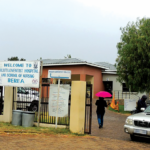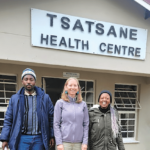Two damning revelations published in this edition, the shocking presence of an unlicensed doctor at Maluti Adventist Hospital and the deepening crisis at Maseru District Hospital, paint a grim portrait of a health system in collapse. These are not mere administrative lapses. They are symptoms of a moral and institutional decay that has put the lives of Basotho in grave danger.
At Maluti Adventist Hospital, a doctor from Madagascar, Dr. Jeremy Manuel, has reportedly been practising medicine, performing critical procedures such as caesarean sections and serving as Chief Medical Officer, without a license from the Lesotho Medical, Dental, and Pharmacy Council (LMDPC). Evidence suggests that despite the council’s clear rejection of his application a year ago, Dr. Manuel was allowed to continue working, allegedly protected by institutional ties to the Adventist Church.
What is most troubling is not just the violation of professional ethics, but the institutional complicity that made it possible. How does a medical institution, one trusted to uphold the sanctity of life, allow an unlicensed individual to conduct surgeries? How does the Ministry of Health, the statutory regulator, and the LMDPC fail to detect and immediately stop such malpractice? These questions go to the very heart of accountability and public safety in Lesotho’s healthcare system.
Meanwhile, at Maseru District Hospital, the story is even more harrowing. Once celebrated as a symbol of progress, a modern, China-funded facility built to reduce foreign referrals and provide advanced medical care, the hospital has become a theatre of human suffering and bureaucratic collapse.
Newsday’s investigation reveals allegations of more than 100 preventable deaths since June 2024, attributed to mismanagement, negligence, and professional infighting. Patients are reportedly misdiagnosed, nurses disregard doctors’ instructions, critical departments like ICU and Theatre are short-staffed, and major surgeries have been postponed for years due to a lack of supplies.
Inside sources describe a hospital crippled by power struggles between medical and nursing leadership, an absentee superintendent, and a Ministry of Health seemingly detached from the crisis. With no reliable data systems, no accountability, and no oversight, lives are being lost in silence, and the very institution built to save Basotho has become a place where hope dies daily.
Taken together, these two scandals reflect a single truth, that Lesotho’s healthcare system is on life support. The problem is not only about the shortage of doctors or resources. It is about a deeper failure of governance, ethics, and leadership, a rot that begins at the top and seeps into every ward, every desk, and every operating room.
When unqualified individuals can perform surgery unchecked, and when over 100 deaths can occur without investigation or consequence, the issue is no longer about isolated mistakes. It is about a culture of impunity, a systemic acceptance of mediocrity and negligence. Hospitals are no longer functioning as institutions of healing; they are bureaucratic fiefdoms where accountability is an inconvenience and human life is expendable.
The Lesotho Medical, Dental, and Pharmacy Council must act decisively and transparently. It must ensure that unlicensed practitioners are immediately removed and that hospitals complicit in such acts face legal and regulatory consequences. The Ministry of Health must also confront its chronic inertia. It cannot continue to respond to public health scandals with silence, excuses, and shifting of blame. A nation that cannot guarantee safe medical care to its citizens is a nation in moral decline.
Moreover, Parliament and the Office of the Ombudsman must urgently launch inquiries into both cases. There must be independent audits of hospital management, personnel licensing, and mortality records. The public deserves to know how many lives have been lost, how many doctors are unqualified, and how millions in taxpayer money allocated for health are being used.
But beyond the investigations, Lesotho must have a deeper conversation about values, about what it means to govern in service of life, and not power. The health crisis exposes a government that has forgotten its duty to protect, and institutions that have lost their sense of purpose.
Every Mosotho life matters. Every preventable death is a national shame. And every act of negligence, from allowing an unlicensed doctor to operate, to ignoring cries from within collapsing hospitals, is a betrayal of public trust.
Summary
- Two damning revelations published in this edition, the shocking presence of an unlicensed doctor at Maluti Adventist Hospital and the deepening crisis at Maseru District Hospital, paint a grim portrait of a health system in collapse.
- Once celebrated as a symbol of progress, a modern, China-funded facility built to reduce foreign referrals and provide advanced medical care, the hospital has become a theatre of human suffering and bureaucratic collapse.
- It is about a deeper failure of governance, ethics, and leadership, a rot that begins at the top and seeps into every ward, every desk, and every operating room.

Authored by our expert team of writers and editors, with thorough research.







